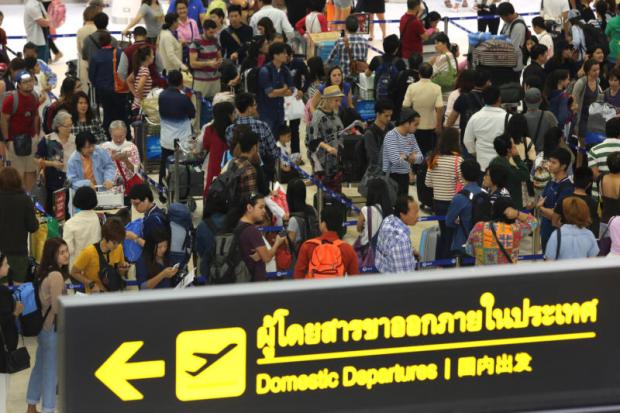
A strong baht is expected to hurt inbound tourism by driving up the cost of travel and narrowing industry margins, say public and private players in the tourism sector.
The Tourism and Sports Ministry revealed yesterday the baht in the year to date has appreciated by 14% against the pound sterling, 8% against Malaysia's ringgit, 5% against the euro and 2% against the US dollar.
Bucking the trend was the Russian ruble, up by 20% against the baht during the first five months of the year as arrivals from Russia grew by 31%.
The ministry expects the ruble to continue climbing during the second half of the year.
The baht's appreciation has been driven by internal factors.
The export sector, for example, jumped by 5.7% between January and April to a total value of US$73.34 billion.
External factors, however, like Brexit, a sluggish Malaysian economy and US policies under President Donald Trump, have also played a part.
"Appreciation increases the price of staying in Thailand, which may make some foreign tourists hesitant about booking trips," said Pongpanu Svettarundra, permanent secretary of the Tourism and Sports Ministry.
Compounding the strong baht is the ongoing air traffic blockade on Qatar, which may halt tourism from the Middle East, and affect many connecting flights from Europe.
The ministry says, however, that travel between Thailand and the Middle East may remain unchanged, as major airlines -- including Qatar Airways -- are still operating as usual.
Some 4.4% of tourists from Thailand arrived on a flight from the Middle East.
Visitors from Arab countries usually travel with family and seek out medical treatment here.
Ittirit Kinglake, president of the Tourism Council of Thailand (TCT), said that despite the former factors he is ''optimistic that Thailand will attract the 34 million tourists which the council projects for this year".
During the first five months, 14.61 million foreign tourists visited Thailand -- a 3.2% increase from the same period last year. Visitors have spent 747.07 billion baht in the country so far this year.
By contrast, locals made 45.14 million domestic trips and generated income of 305.38 billion baht for the economy in the same interval.
Hotel operators in Bangkok said the high season will likely begin in late November or early December, judging from advance booking made from overseas markets.